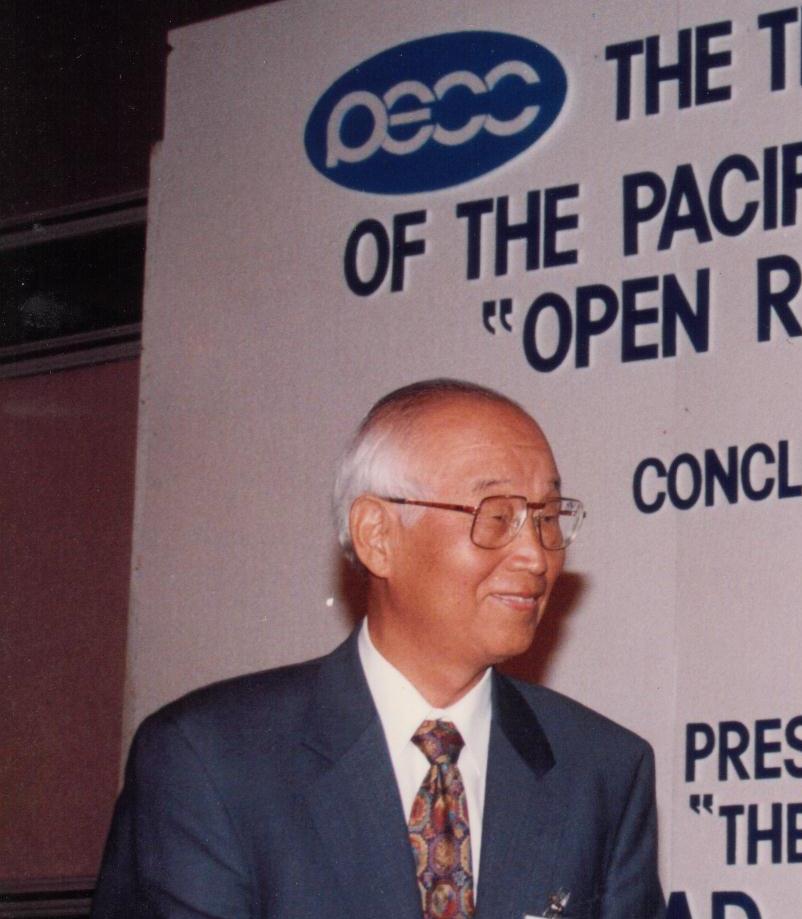 Nam Duck-woo, a founding member of PECC and first chair of KOPEC (Korea committee for Pacific Economic Cooperation) passed away on May 18th, 2013 in Seoul at the age of 89. Dr. Nam earned a doctorate in economics at Oklahoma State University and was teaching at Sogang University when in 1969 he was recruited by then President Park Chung-hee to serve as the finance minister. He remained in the position till 1974 and from 1974 to 1978, he served as the deputy prime minister in charge of economic policies at the height of Korea’s industrial development. Under the next president, Chun Doo-hwan, he served as the prime minister from 1980 to 1982.
Nam Duck-woo, a founding member of PECC and first chair of KOPEC (Korea committee for Pacific Economic Cooperation) passed away on May 18th, 2013 in Seoul at the age of 89. Dr. Nam earned a doctorate in economics at Oklahoma State University and was teaching at Sogang University when in 1969 he was recruited by then President Park Chung-hee to serve as the finance minister. He remained in the position till 1974 and from 1974 to 1978, he served as the deputy prime minister in charge of economic policies at the height of Korea’s industrial development. Under the next president, Chun Doo-hwan, he served as the prime minister from 1980 to 1982.
Dr. Nam held the position of KOPEC chair from 1982 to 1993. During the earlier part of his chairmanship, he fervently supported the rationale and aims of PECC as such:
“I think the Pacific Economic Cooperation Council (PECC), a tripartite body with representatives from business, academic and government circles, provides an excellent example of how the various interest groups can work together to establish an effective mechanism for Pacific Cooperation. I would like to suggest that the regional countries should take advantage of the opportunity offered by the PECC, and use it as a model for future institutionalized forms of cooperation. In particular, the PECC can be extremely beneficial as a kind of information clearinghouse from which the countries in the Pacific Basin can obtain information on the policies, economies and strategies of their neighbors. This in itself will go a long way towards improving cooperation, especially in terms of economic and industrial policies, in the Pacific.” (July 1983)
At the 25th anniversary celebration of PECC held in Seoul in September 1995, Dr. Nam fondly recalled that “PECC had created the political will among the regional governments to launch APEC,” and that “PECC’s another highly significant achievement during the 1980s was the formulation and advocacy of the so-called ‘open-regionalism.’” He congratulated PECC for serving as the “guiding principle of the APEC” and reiterated that PECC’s value was not just on the traditional issues of tariffs but “also on many other, often less transparent, impediments to mutually beneficial economic integration in the Pacific.”
He is survived by his wife and three children. Please leave your personal comments here.

 Nam Duck-woo, a founding member of PECC and first chair of KOPEC (Korea committee for Pacific Economic Cooperation) passed away on May 18th, 2013 in Seoul at the age of 89. Dr. Nam earned a doctorate in economics at Oklahoma State University and was teaching at Sogang University when in 1969 he was recruited by then President Park Chung-hee to serve as the finance minister. He remained in the position till 1974 and from 1974 to 1978, he served as the deputy prime minister in charge of economic policies at the height of Korea’s industrial development. Under the next president, Chun Doo-hwan, he served as the prime minister from 1980 to 1982.
Nam Duck-woo, a founding member of PECC and first chair of KOPEC (Korea committee for Pacific Economic Cooperation) passed away on May 18th, 2013 in Seoul at the age of 89. Dr. Nam earned a doctorate in economics at Oklahoma State University and was teaching at Sogang University when in 1969 he was recruited by then President Park Chung-hee to serve as the finance minister. He remained in the position till 1974 and from 1974 to 1978, he served as the deputy prime minister in charge of economic policies at the height of Korea’s industrial development. Under the next president, Chun Doo-hwan, he served as the prime minister from 1980 to 1982.